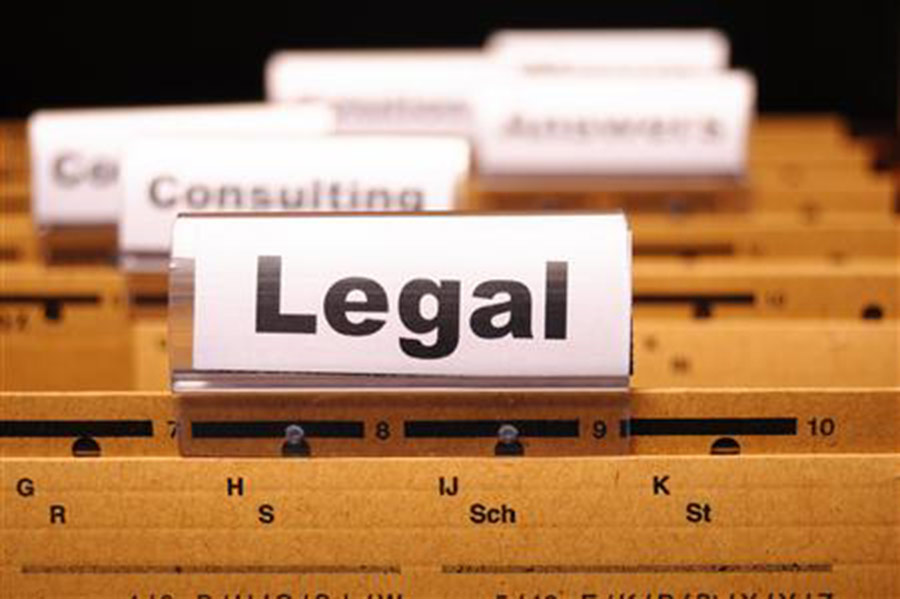The Disciplinary Board of the state Supreme Court has withdrawn its appeal of a federal judge’s ruling halting implementation of an LGBT-inclusive antibias rule for Pennsylvania attorneys that was slated to go into effect Dec. 8, 2020.
The rule would have facilitated discipline for attorneys engaged in anti-LGBT bias or harassment. But on March 16, without explanation, the board withdrew its appeal at the Third Circuit Court of Appeals, thus solidifying the rule’s unenforceability. As of presstime, the rule remained on the board’s website, with a caveat that it cannot be enforced.
Stacey Witalec, a board spokesperson, said the board had no comment for this story. “The board will have nothing further to offer on this issue,” Witalec said, in an email. The board’s members are: James C. Haggerty, John F. Cordisco, Celeste L. Dee, John P. Goodrich, Jerry M. Lehocky, Christopher M. Miller, Gretchen M. Mundorff, John C. Rafferty, Dion G. Rassias, Robert L. Repard, Eugene F. Scanlon Jr. and David S. Senoff.
The rule was promulgated by the state Supreme Court in June 2020. It was challenged by Zachary S. Greenberg, a Philadelphia-based attorney who claims the rule would have a “chilling effect” on his free-speech rights. On Dec. 7, U.S. District Judge Chad F. Kenney of the Eastern District of Pennsylvania sided with Greenberg. The judge said the new rule constitutes “viewpoint discrimination,” thus it violates the First Amendment. Kenney issued an injunction enjoining its enforcement.
Kenney’s ruling emphasized the free-speech rights of individuals. “Our limited constitutional government was designed to protect the individual’s right to speak freely, including those individuals expressing words or ideas we abhor,” the judge wrote.
Adam E. Schulman, an attorney for Greenberg, said his client was pleased with the board’s decision. “We are glad they withdrew,” Schulman told PGN. “We thought Judge Kenney’s order was extremely well-reasoned. My client is not anti-LGBT. He believes Pennsylvania can protect LGBT rights in the legal field in a way that’s compatible with the First Amendment. If the Disciplinary Board puts forth a new rule, we’ll be happy to provide our input in crafting the rule in a way that avoids First Amendment issues.”
Greenberg wouldn’t object to a narrowly-tailored rule stating that Pennsylvania attorneys shall not discriminate against clients on the basis of LGBT status, Schulman added.
Stephen T. Kulp, chair of the Philadelphia LGBTQ Bar Association, called the board’s decision “alarming.”
“The Pennsylvania Supreme Court’s disciplinary board decision to voluntarily dismiss its Third Circuit appeal — without explanation — is alarming and difficult to comprehend,” Kulp said, in an email. “The Philadelphia LGBTQ Bar Association remains undaunted in our mission [of] advancing equity and protecting the civil and human rights of all persons, regardless of race, creed, gender, sexual orientation, ethnicity or national origin — and looks forward to working with all the other organizations that backed the rule to achieve that goal.”
Justin F. Robinette, a local civil-rights, said the board should be more committed to LGBT rights. “I’m disappointed but I can’t say I’m surprised — given how backwards Pennsylvania is on LGBT non-discrimination,” Robinette told PGN. “It’s outrageous and cowardly that the board backed down in the face of such a frivolous challenge. The first time somebody got up to the plate they walked away from the mound. Their flip-flop on this issue sends a horrible message to the LGBT community. It’s as if our rights are up for negotiation. That’s very disheartening. And it also reflects poorly upon the disciplinary board and the legal profession in Pennsylvania. I hope they don’t put forth a new, watered-down rule simply to appease the other side. I’d prefer they do nothing rather than promulgate a new rule that’s meaningless. Other states and the American Bar Association have implemented similar rules. So Pennsylvania should catch up with the times.”
Lauren P. McKenna, chancellor of the Philadelphia Bar Association (PBA), said in a statement that “We are disappointed that Rule 8.4(g) will not be implemented in Pennsylvania. As lawyers, it is our responsibility to lead the way toward a more just, diverse and fair legal system. The PBA calls on the Supreme Court of Pennsylvania to begin working on a new version of Rule 8.4(g). And we stand ready to assist in this endeavor.”
Thomas W. Ude Jr., legal and public policy director at Mazzoni Center, said the antibias rule at issue had “wide support.”
“Rule 8.4(g) was adopted with wide support, to put an end to slights, insults, and harassment that our community — and our lawyers — face because of race, religion, sex, gender identity, sexual orientation, and other characteristics,” Ude said, in an email. “Many attorneys and many parties have identities that leave us exposed to bias. The Disciplinary Board should act to ensure that bias and harassment are unethical, as well as illegitimate, tactics. Its decision to drop the appeal, and the absence of any explanation, are frustrating. That silence raises questions about the aftermath of this litigation, which eviscerated an antibias rule, at least temporarily, because of one man’s hypothetical fears that he might get criticized for making offensive speeches.”
